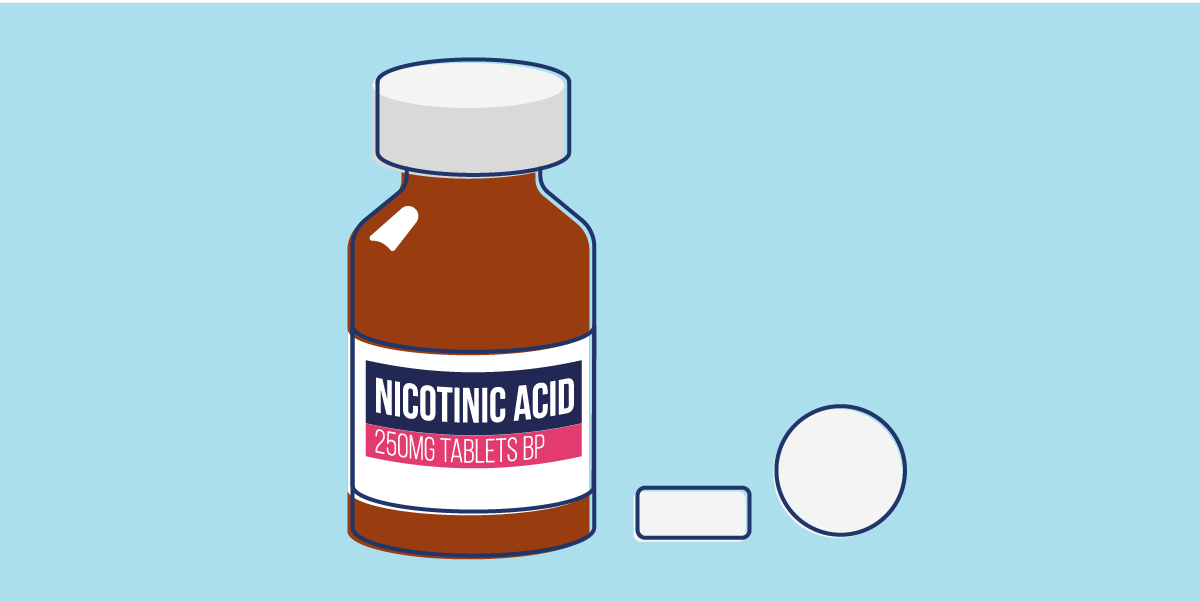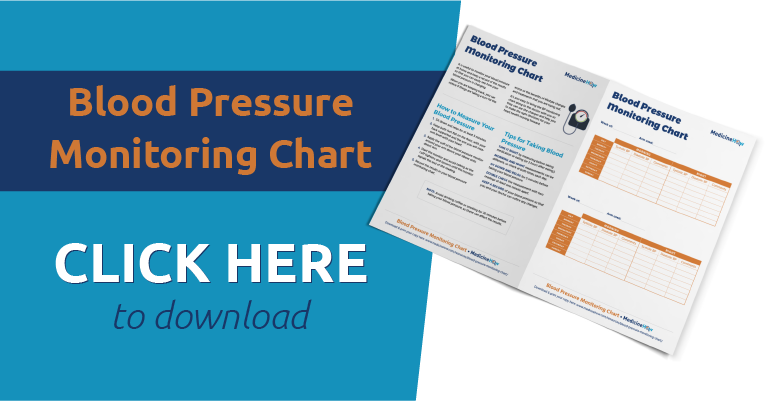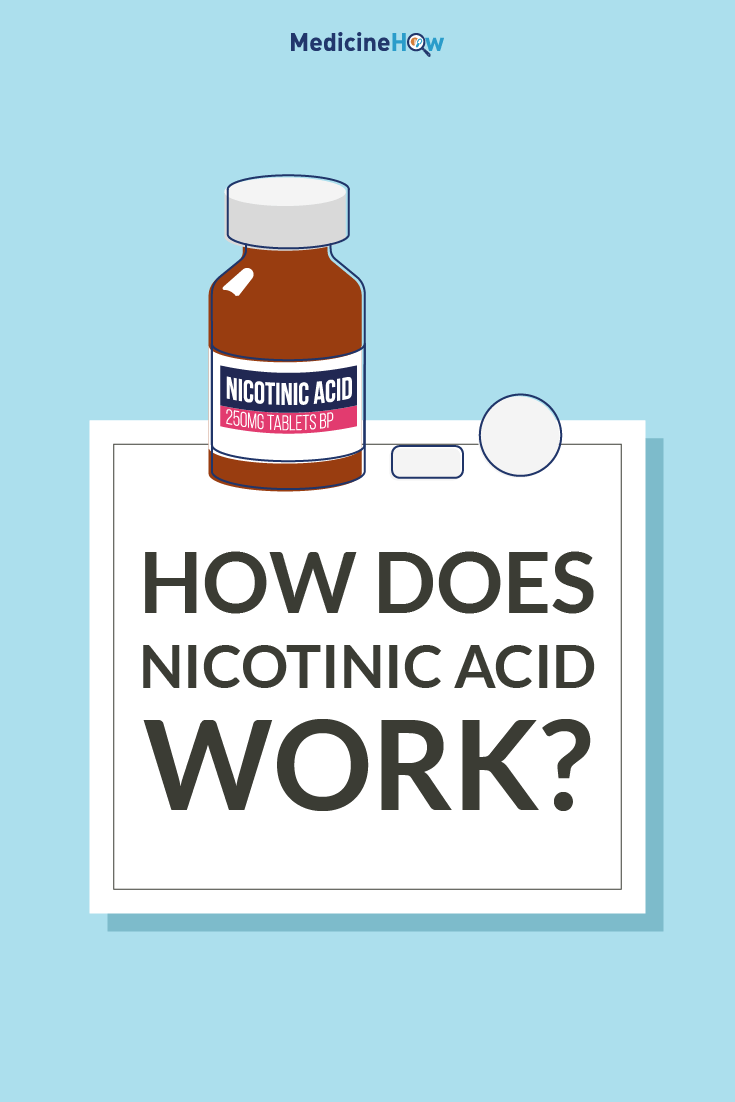
Nicotinic acid, also known as niacin, can be used to manage high cholesterol or deficiency in niacin. It is thought to work by reducing the release of fatty acids from the adipose tissue in the peripheral tissues of the body.
What is nicotinic acid used for?
![]() Nicotinic acid may be used to manage hypercholesterolemia, mixed hyperlipidemia or severe hypertriglyceridemia.
Nicotinic acid may be used to manage hypercholesterolemia, mixed hyperlipidemia or severe hypertriglyceridemia.
The level of cholesterol in the blood is believed to be an important factor for atherosclerosis that can cause an obstruction or complete blockage of your blood vessels, and may be linked to a risk of heart attack, stroke or other cardiovascular events. For this reason, nicotinic acid may help to normalise high cholesterol levels.
Nicotinic acid should only be used in combination with diet and lifestyle alterations and not as a substitute for healthy living choices.
Nicotinic acid can also be used to manage pellagra, which is a deficiency of niacin in the body.

Dosing
![]() Nicotinic acid is available is a single dose of 250 mg tablets.
Nicotinic acid is available is a single dose of 250 mg tablets.
For hyperlipidemia, most people begin by taking 1 tablet 3 times a day, usually with meals to reduce stomach upset that can affect some people. The dose can then be increased every 4 days until the right dose is reached to control cholesterol levels, to a maximum of 4 tablets three times a day.
Starting with a lower dose and gradually increasing it helps to reduce the risk of side effects when beginning the medication, as it allows your body to get used to taking the drug.
For pellagra, a dose of one 250mg tablet twice a day is sufficient to manage niacin deficiency.
How does nicotinic acid work?
![]() This exact mechanism of nicotinic acid and the way it works in the body is not precisely known. However, there are several theories to explain the effects it has.
This exact mechanism of nicotinic acid and the way it works in the body is not precisely known. However, there are several theories to explain the effects it has.
The most likely theory is that it may suppress the release of fatty acids from the adipose tissue around the body, which are needed for the production of cholesterol and lipoproteins.
As a result of this, it can help t reduce LDL cholesterol and triglycerides and increase HDL cholesterol in the blood, all of which is thought to help in the reduction of plaque formation (atherosclerosis) in the blood vessels that have the potential to block the flow of blood.
Side Effects
![]() If you are taking nicotinic acid, you may notice side effects such as:
If you are taking nicotinic acid, you may notice side effects such as:
- Vasodilation
- Flushing of the face and neck
- Hypotension
- Heartburn
- Nausea, vomiting and diarrhoea
The majority of these side effects occur when the dose of nicotinic acid is too high and can easily be reduced if the dose is lowered. For the gastrointestinal side effects (nausea, vomiting and diarrhoea), taking doses with meals helps to reduce these effects.
If you notice muscle pain, tenderness or weakness, you should see your doctor as soon as possible, as this can be a sign of more serious side effects.
Precautions
![]()
There are some people who shouldn’t take nicotinic acid or need extra care while taking it. If you:
- Have peptic ulcer disease, the symptoms may be exacerbated.
- Are affect by gout, there is an increased risk of hyperuricemia.
- Have diabetes, there may be an increase in blood glucose concentration.
Additionally, nicotinic acid is contraindicated if you have symptomatic hypotension, as hypotension is a common side effect of the medication and it can make this worse.

Drug Interactions
![]()
Both ezetimibe and bile acid-binding resins such as cholestyramine and colestipol work by reducing the absorption of cholesterol from the intestine and they may affect each other’s ability to work. It is best to use one or the other, but both may be used together by separating the doses by 2-4 hours.
Rifampicin can decrease the concentration of ezetimibe and its effect in the body. If this is a problem, it may be best to choose an alternative for ezetimibe.
Make sure that your doctor knows if you are taking any of these medications as they may need to adjust the dose or use an alternative medication.
Pregnancy and Breastfeeding
![]() Nicotinic acid is not recommended for use in pregnancy due to the effects it may have on the baby, but there has not been much research to investigate the safety of this. If you are taking this medication and are trying to conceive, you should talk to your doctor about your options going forward. In some circumstances it may be used, but there is little known about the safety.
Nicotinic acid is not recommended for use in pregnancy due to the effects it may have on the baby, but there has not been much research to investigate the safety of this. If you are taking this medication and are trying to conceive, you should talk to your doctor about your options going forward. In some circumstances it may be used, but there is little known about the safety.
Nicotinic acid is not usually recommended for women who are breastfeeding due to the effect it could have on the baby if excreted in breast milk. There’s no research to indicate if it is safe or harmful, so it is only used in rare cases where it is thought to be the best option.
Pin it!


